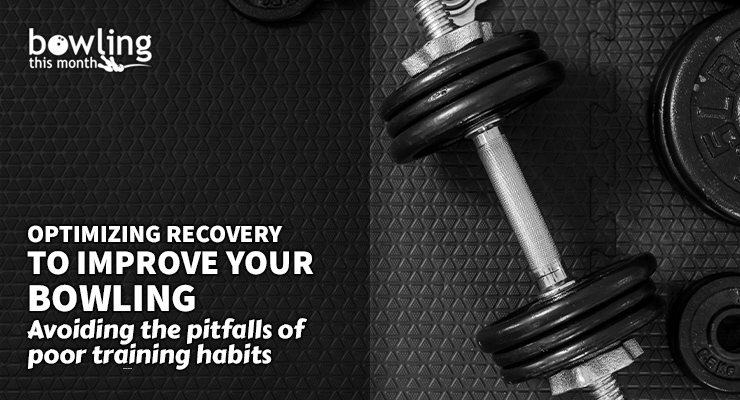Article Contents
- 1. Overreaching versus overtraining
- 2. Chasing sweat and fatigue in your training
- 2.1. Smarter training
- 2.2. Strength training versus conditioning
- 3. Lack of specific goal-setting
- 4. Three simple keys to optimizing recovery
- 4.1. Nutrition
- 4.2. Hydration
- 4.3. Sleep
- 5. Closing thoughts
Note: This article is only available to Bowling This Month subscribers.
Have you ever woken up the day after a long qualifying block in a tournament feeling drained, sore, and wondering how you’ll possibly compete well that day? Or have you ever begun an exercise regimen and found yourself sore for days, likely falling behind on the workout training because you felt like you were constantly dragging?
If you’ve felt these things before, then this article is going to hopefully shed some light on what to do to help your body recover more quickly from exercise or bowling competitions so you can be ready to perform when needed. We’ll start by discussing the difference between overreaching and overtraining.
Overreaching versus overtraining
The goal of any strength and conditioning coach is to create training programs for athletes that create overreaching, but not overtraining. Overreaching is a short-term state of stress on the body from working above capacity. The body needs to be stressed in order for a physiological change and adaptation to occur. If you want to get stronger, the load of training needs to create an overreaching response.
However, if the body does not recover fully from overreaching and continued excessive stress is placed on the body, then the long-term effects of the stress response can be overtraining. Overtraining is signified by trouble sleeping, fatigue, decreased performance, excessive body soreness, loss of appetite, mood changes, irritability, injuries, and illness. The worst part about overtraining is that it can take weeks or months for your body to bounce back from that state.
An athlete is enduring not just physical fatigue, but also mental fatigue, which adds to the stress. When it comes to high school and college athletes, they are also dealing with stresses of school and studying for tests. For adults, ...
Already a premium member? Click here to log in.


